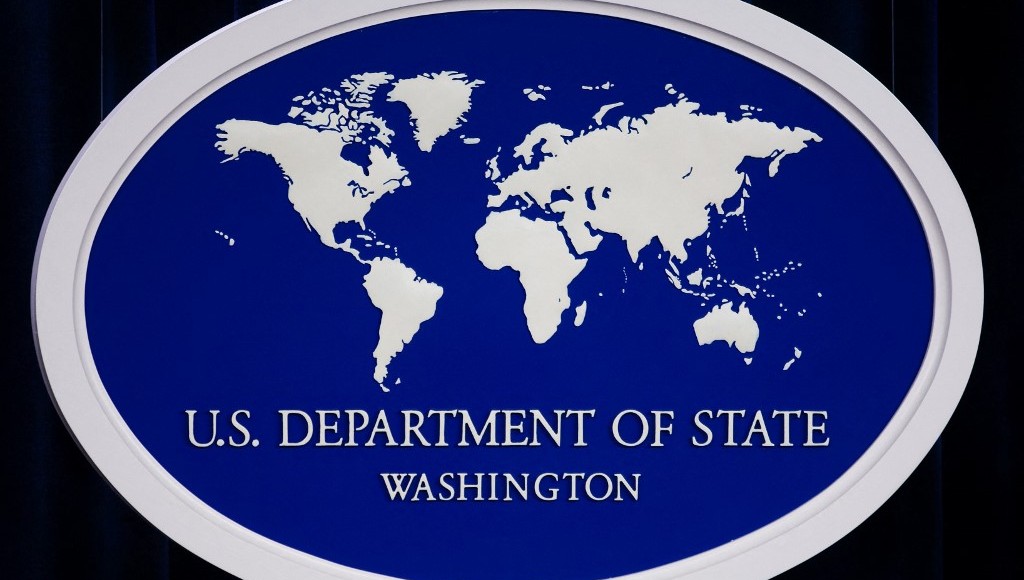The US State Department said in its “Country Reports on Terrorism 2023” released this week that Turkey continued to detain and arrest individuals for alleged terrorism-related links based on scant evidence and minimal due process.
The report highlighted Turkey’s broad interpretation of terrorism and its controversial counterterrorism practices, which critics say often target political dissent and peaceful activism.
Turkey’s counterterrorism laws, which include a broad definition of terrorism, continued to draw criticism from rights groups and international observers, according to the report. The US State Department underlined how Turkey’s laws criminalize actions deemed to be “crimes against the constitutional order” and the “external and internal security of the state.”
The Ministry of Interior’s Cybercrime Department monitored over 1 million social media accounts in 2023, identifying nearly 20,000 accounts allegedly linked to terrorism. This surveillance resulted in the detention of approximately 190 suspects, including individuals accused of sharing posts perceived as terrorist propaganda.
The report pointed to concerns over Turkey’s continued labeling of the Gülen movement —inspired by late Turkish cleric Fethullah Gülen—as the “Fethullahist Terrorist Organization” (FETÖ). The US government does not recognize the Gülen movement as a terrorist group, and critics argue that Ankara’s crackdown on alleged Gülen supporters often lacks credible evidence. Many individuals accused of Gülen links face prolonged detention and restricted legal rights.
Counterterrorism operations and PKK clashes
The State Department noted that Turkey ramped up efforts in 2023 to combat various “terrorist organizations,” including the Kurdistan Workers’ Party (PKK), the Revolutionary People’s Liberation Party/Front (DHKP/C) and the Islamic State in Iraq and the Levant (ISIL). The PKK, which Ankara and its Western allies designate as a terrorist organization, continued to launch attacks within Turkey and against Turkish interests abroad, the report said. In response, Turkey’s military conducted operations in northern Iraq and Syria, targeting PKK elements.
The department cited the International Crisis Group as reporting that 51 state security personnel, 196 PKK fighters and 11 civilians were killed in PKK-linked incidents in 2023. A PKK suicide attack on October 1 outside the Ministry of Interior in Ankara injured two police officers and prompted Turkish airstrikes on what officials described as PKK targets in northern Iraq and northeast Syria. The strikes reportedly killed 10 civilians, injured others and caused significant damage to infrastructure, including hospitals and factories.
In December, PKK attacks in northern Iraq resulted in the death of 12 Turkish soldiers.
Efforts against ISIL
The State Department noted that Turkey’s security forces intensified their operations against ISIL in 2023. According to the Turkish presidency, law enforcement detained 19,317 individuals for alleged ISIL affiliation between 2014 and 2023, while more than 7,600 foreign nationals were deported over suspected foreign terrorist fighter activities. In 2023 alone the National Intelligence Organization (MİT) reportedly worked with law enforcement to capture 426 ISIS-linked individuals in both Turkey and Syria.
The report also noted significant arrests thwarting ISIL’s planned attacks on diplomatic missions, places of worship and other targets. In December a joint operation between MİT and Turkish police led to the detention of 32 suspects accused of plotting attacks on synagogues, churches and the Iraqi Embassy in Ankara.
Civilian displacement and detentions
At the end of 2023 there were approximately 1,220 displaced and 200 detained Turkish nationals in northeast Syria, according to the report. The report said Turkey actively engaged in discussions on repatriating displaced and detained foreign nationals and signaled a willingness to address broader regional challenges tied to terrorism and displacement.
Countering terrorist financing
Turkey remained on the Financial Action Task Force’s (FATF) grey list in 2023 due to ongoing deficiencies in its anti-money laundering and countering the financing of terrorism (AML/CFT) framework, the report stated. However, FATF acknowledged progress, including new regulations targeting politically exposed persons, guidance for the private sector on detecting terrorist financing and enhanced financial intelligence dissemination by Turkey’s Financial Crimes Investigation Board (MASAK).
FATF removed Turkey from its grey list in June this year.
The State Department’s report praised Turkey’s efforts to conduct parallel financial investigations in terrorism cases. Still, significant challenges remain in ensuring that these measures are implemented effectively and equitably, the report said.
The US State Department’s report highlighted ongoing human rights concerns tied to Turkey’s counterterrorism efforts. The government’s frequent use of terrorism charges against individuals exercising the freedoms of expression and assembly raised alarms among human rights organizations. The broad and vague application of terrorism laws enabled the prosecution of journalists, activists and opposition figures, often in trials marked by limited transparency and due process.
Observers have criticized Ankara’s conflation of legitimate political dissent with terrorism, which they argue undermines democratic freedoms. The State Department’s report underscored these issues and stressed the need for Turkey to ensure that counterterrorism measures align with international human rights standards.
